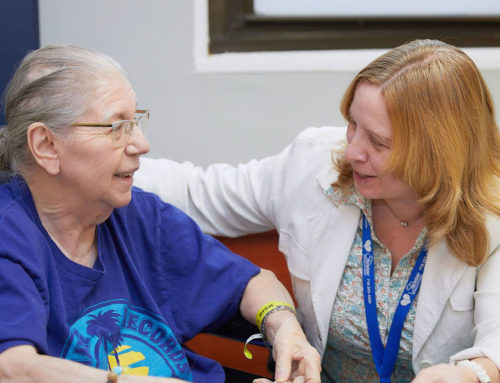Stress Can Shorten Life: What Happens During and After
Regular stress shortens life because there are hardly any diseases in which stress does not play a part. It is a powerful tool for self-destruction and can kill you unless you understand it and manage it. Otherwise, it will ruin your immune system in the first place.
Stress is a natural reaction to threats, demands, or changes to which you attach special importance. People under stress release the stress hormone cortisol into their bloodstream to allow them to respond quickly.
Common stressors include the emotional longing for an absent loved one, financial distress, or overwork. In some people, illnesses such as thyroid desease, cancer, cardiac issues can lead to despair, in turn leading to further anxiety and stress. But let’s see how chronic stress actually damages our health.

Stress Shortens Life Because It Damages the Heart
Constant or prolonged stress is an important contributing factor to heart disease and the erosion of health in general. Over time the adrenalin released by stress hormones creates a continued state of vigilance with damaging physiological consequences.
Stress can be dangerous for you as it is known to lead to increased heart rate, cardiovascular problems, breathing difficulties and high blood pressure. What exactly may happen during stress.
Arteries Get Narrowed
Stress can shorten life as it causes the heart rate to go up, and tension can be created, so our breathing changes.
Furthermore, prolonged stress is associated with higher levels of free fatty acids and blood sugar. These are produced as a reaction to help you cope with a perceived emergency. Stress can speed up the deposits of fat along arteries narrowing them and restricting blood-flow.
The narrowing of arteries is caused by the build-up of fibrous and fatty material and leads to coronary heart disease. Chronic stress and an unhealthy lifestyle are major risk factors in the development of this life-threatening condition.
Stress can be killing when it is regular
There’s a substantial amount of research indicating that chronic stress triggers inflammation, explains Janice Kiecolt-Glaser, of The Ohio State University, who researches how stress impacts the body. Inflammation is linked to numerous diseases, such as heart disease, cancer, arthritis, and various mental health conditions.
Too much or chronic stress can lead to “burn out”, harm your immune system, and accelerate the aging process. It can also contribute to memory loss, concentration difficulties, insomnia and mental illnesses.
All the research suggests that long-term chronic stress can shorten your life unless you take appropriate action. It can damage your nervous system by generating a constant adrenaline rush.
Excessive anger, negative emotional states and prolonged depression lead to high stress levels that can cause death.
Damage to tissues in the body caused by stress can lead to inflammation. Stress can prompt headaches, ulcers, neck aches, allergies, and diminished sexual desire.
What to do?
To reduce your stress, you first need to understand it and know what is causing it. Seek advice and make the necessary dietary and lifestyle changes:
- Have a pet
- Play relaxing music
- Play with children
- Dance
- Do crossword puzzles
- Do whatever makes you happy and relaxed
Fairview ADC: Don’t let stress kill you
Alongside compassionate nursing care and beautiful surroundings, Fairview Adult Day Care Center in Brooklyn NY offers entertainment, games, and stress-busting fun activities. It’s a setting where you can share your worries, join exercise classes or yoga sessions, and have a laugh.
Many elderly people undergoing rehab after an illness or operation live alone or are lonely. This can heighten stress, anxiety and shorten your life.
At Fairview you can mingle and socialize as you take part in physical or occupational therapy sessions. You can enjoy a delicious, healthy meal in the company of friends, while sharing some stories about the good old days. You can even get back on the dance floor and have a laugh or take part in singalongs.
Entertainment and smiles are a key part of the rehab process and Fairview caters for all needs.
Fairview is a place where you or your elderly loved one can enjoy the company of others and our friendly, multilingual staff. Contact us to find out about all the therapies and programs available to stop stress from killing you.
This article is for educational and informational purpose only and does not substitute for professional medical advice. For any questions about your own health condition, speak to a qualified physician or healthcare provider.







I am 79 and female living with a very verbal abuse he is 81 years old acholic I don’t have the mean to move is there any hope
I am 63 years old and in a very stressful situation..im homeless and living in a motel with my son..hes 33 yrs old and we’ve been homeless for over a year now and moving frm motel to motel…he does have a job now he just got 3 months ago but every penny goes to this room…ive been having really bad headaches and earaches and have been to urgent care 4 times in the last 2 months..they give me meds but nothing seems to work…i still have severe headaches and earaches…i think its due to my situation …i really think this stress will eventually kill me…
I hope your okay and things are better for you.